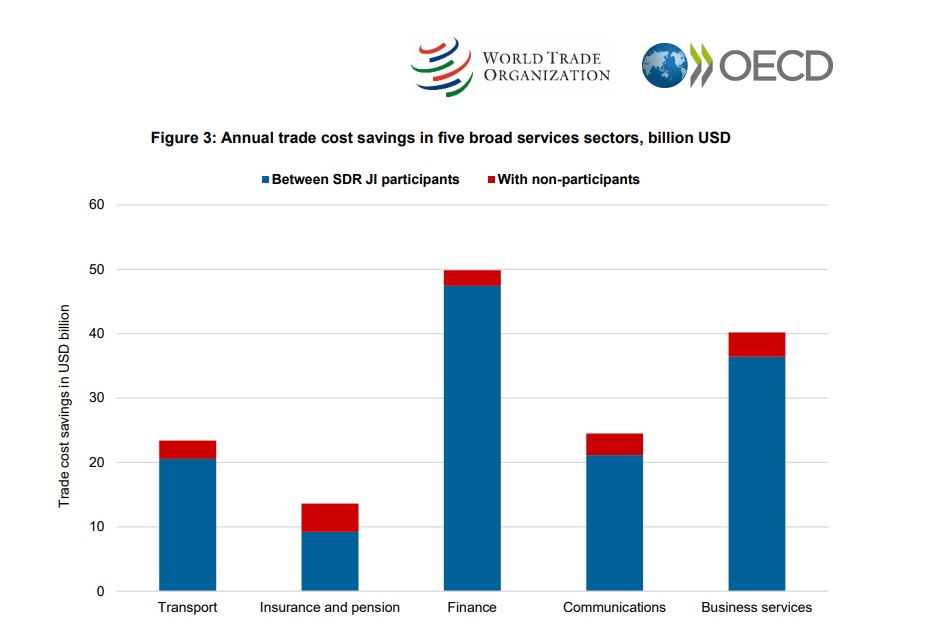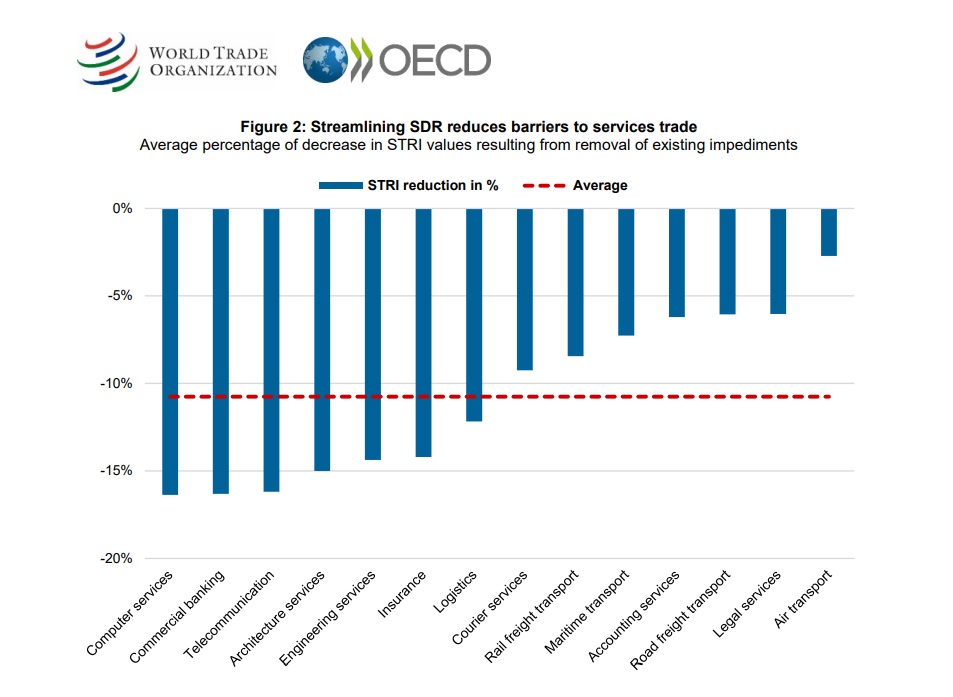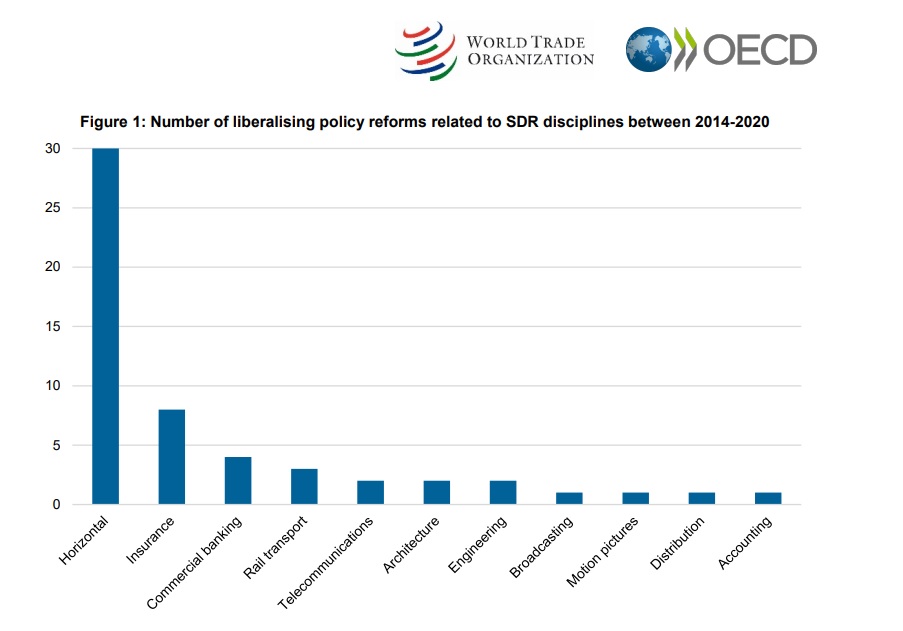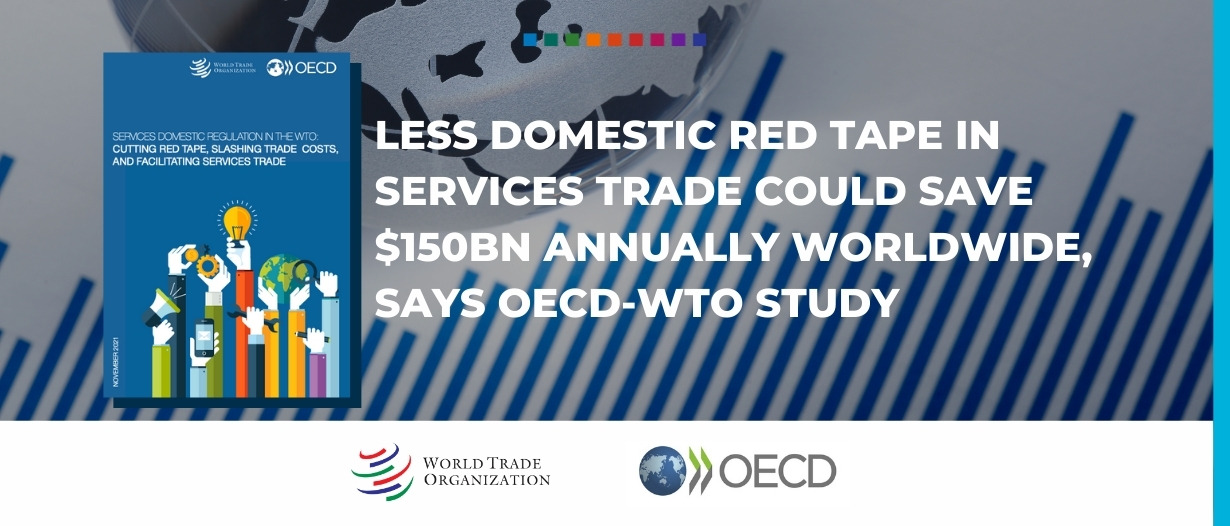A new study has found that lowering domestic red tape in services trade could save an annual $150 billion globally.
The study, published on Friday by the Organisation for Economic Co-operation and Development (OECD) and the World Trade Organization (WTO), highlighted the economic benefits that would result from a new deal on services domestic regulation (SDR) between a group of 67 WTO members.
Entitled ‘Services domestic regulation in the WTO: Cutting red tape, slashing trade costs, and facilitating services trade’, the study looked at how improved regulatory systems for licensing and authorising service providers could save cash and stimulate growth.
Notably, the study found that a reduction in red tape and increased transparency in SDR could lead to significant savings for financial, business, communications, and transport service providers.

The study is part of a Joint Initiative on Services Domestic Regulation, in which 67 WTO members are taking part.
The 67 members include the US, UK, China, France, and Germany, and together they represent 90% of world services trade.
Services trade in focus
Services are the most dynamic and fastest growing sector of today’s global economy, representing over 60% of world GDP in value-added terms and more than 50% of employment worldwide, according to the report.
Services also provide critical inputs to other sectors, such as transport, logistics, communications, or financial services that facilitate the functioning of global value chains.

Meanwhile, research, development, and engineering services foster productivity and innovation in all economies.
However, the ability of service providers to engage in trade and the potential of the services sector overall remains constrained by a variety of trade barriers.
For example, the cost of trading services is twice as high as that of goods, and regulation-related factors account for more than 40% of these costs, according the 2019 WTO World Trade Report.

OECD estimates also suggest that the barriers recorded in the OECD Services Trade Restrictiveness Index (STRI) involve average trade costs between 50% and 250% of export values.
Among the obstacles, the lack of transparency of laws and regulations, and pervasive procedural inefficiencies figure prominently.
Delivering an SDR transformation
The Joint Initiative on Services Domestic Regulation hopes to conclude its negotiations at the 12th Ministerial WTO Conference (MC12), which was scheduled to begin tomorrow in Geneva, Switzerland, but has been postponed due to COVID-19 travel restrictions.
The final deal will be applied on a “most-favoured nation” basis, meaning that it will benefit all WTO members.
Specifically, based on the findings of the OECD-WTO study, the Joint Initiative believes that new regulations could:
- improve the business climate: by enhancing the transparency, efficiency, and predictability of regulatory frameworks, the new disciplines will address the practical challenges that affect the ability of businesses and suppliers to operate in foreign markets.
- lower trade costs and lead to other trade benefits: annual savings could amount to $150 billion globally, with important gains for financial, business, communications and transport services. Moreover, the implementation of the new disciplines would increase the value of services trade and lead to enhanced participation in global value chains.
- facilitate services trade: while an increasing number of “new generation” ambitious trade agreements are being concluded, economies at all levels are also implementing reforms on services trade. Implementing the outcome of the negotiations would ensure that domestic regulatory arrangements can open trade opportunities for services providers, particularly for small businesses.
- generate widespread gains beyond the participants: exporters from all WTO members will benefit from the improved regulatory conditions when they trade with participants in this joint initiative.





























